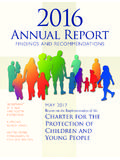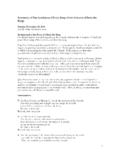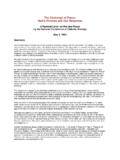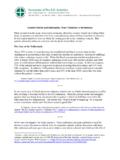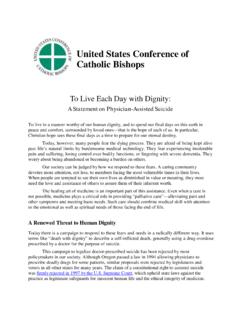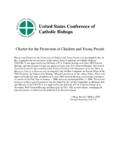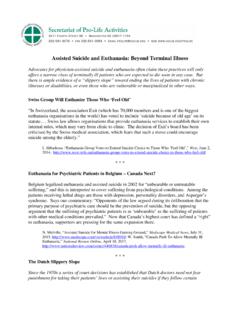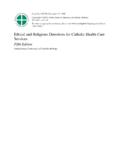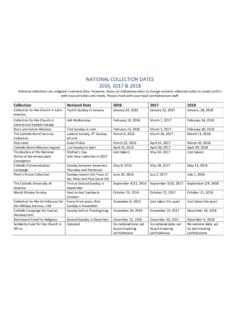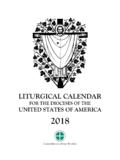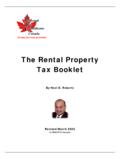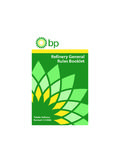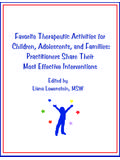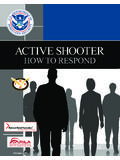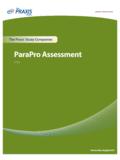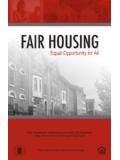Transcription of Cover - Diocesan Review Board Resource Booklet
1 Diocesan Review Board Resource Booklet Introduction This Diocesan Review Board Resource Booklet was developed jointly by the Committee on the Protection of Children and Young People (CPCYP), the National Review Board (NRB), and the Committee on Canonical Affairs and Church Governance (CCACG). The purpose of this document is to provide bishops and eparchs and those who assist them with a step-by-step explanation of the various processes provided for in canon law to address the delict of clergy sexual abuse of a minor. This Resource contains three documents: (1) General Questions and Answers regarding Diocesan Review Boards, (2) the November 19, 2003, document distributed by the Committee on Canonical Affairs to all the bishops, and (3) Questions and Answers Regarding the Canonical Process for the Resolution of Allegations of Sexual Abuse of Minors by Priests and Deacons.
2 These documents are meant to serve as resources only. In preparing this Booklet , the CPCYP, CCACG, and the NRB gave special attention to ensuring that the contents fully respect the governance of each bishop/eparch. The documents in the Resource Booklet will be reviewed periodically and updated. If there are questions you wish addressed that are not included in the attached, please do not hesitate to forward them to the Secretariat of Child and Youth Protection c/o Enclosure 1 Diocesan Review Boards Questions & Answers The Catholic bishops of the United States adopted the Charter for the Protection of Children and Young People (Charter), in June 2002. The Charter was revised and approved in June 2005.
3 The Essential Norms for Diocesan /Eparchial Policies Dealing with Allegations of Sexual Abuse of Minors by Priests or Deacons (Essential Norms) was approved by the Apostolic See in December 2002 and a revision was approved January 2006. These documents stipulate that each bishop/eparch must establish a Review Board to function as a confidential, consultative body to the bishop/eparch on matters related to the response of the local church to issues surrounding the sexual abuse of minors by priests and deacons. The Charter specifically states in Article 2: Dioceses/eparchies are also to have a Review Board that functions as a confidential consultative body to the bishop/eparch. The majority of its members are to be lay persons not in the employ of the diocese/eparchy (see Norm 5 in Essential Norms for Diocesan /Eparchial Policies Dealing with Allegations of Sexual Abuse of Minors by Priests or Deacons, 2002).
4 This Board is to advise the Diocesan /eparchial bishop in his assessment of allegations of sexual abuse of minors and in his determination of a cleric s suitability for ministry. It is regularly to Review Diocesan /eparchial policies and procedures for dealing with sexual abuse of minors. Also, the Board can Review these matters both retrospectively and prospectively and give advice on all aspects of responses in connection with these cases. The Committee for the Protection of Children and Young People (CPCYP) and the National Review Board (NRB) present the following Questions and Answers as a Resource to facilitate the functioning of the Diocesan /eparchial Review boards. The CPCYP and the NRB acknowledge that dioceses/eparchies differ in both their structure and resources and that the local Review Board structures vary.
5 These questions and answers, therefore, are intended as outline possibilities that might be adapted to the various situations in which Review boards operate. They are presented as a Resource or tool to facilitate the Review of local structures and procedures. They may also serve as a Resource to Diocesan /eparchial Review boards in carrying out the functions outlined in the Charter and Essential Norms. 1. What is the nature and authority of the Charter and Essential Norms? Fundamental to the establishment of Diocesan /eparchial Review boards are several canonical considerations that are directly related to the authority of the Charter and Essential Norms and to the nature and authority of the Diocesan /eparchial Review boards.
6 An awareness and understanding of these considerations can assist members of Review boards and Diocesan /eparchial officials in fulfilling their responsibilities and ensuring appropriate functioning of the Review boards. Such considerations include the following: The two documents approved by the United States Conference of Catholic Bishops (USCCB), the Charter for the Protection of Children and Young People and Essential Norms together form a unity, but are different in nature. 2 The Charter contains an extensive declaration of intent on the part of the bishops regarding future policies and provides a framework for the implementation of Essential Norms. The Essential Norms, which have received the required recognitio from the Holy See, constitute particular law for the dioceses/eparchies that belong to the United States conference of Catholic Bishops.
7 As such, the Essential Norms bind those subject to them. While the bishops/eparchs freely agreed to follow the provisions of the Charter, the bishops/eparchs are legally bound to observe the stipulations of the Essential Norms. 2. What is the authority of the bishop/eparch in relation to the Review Board ? The bishop/eparch possesses all the ordinary, proper and immediate power he needs to carry out his pastoral ministry in the diocese entrusted to him. In exercising his pastoral leadership role in the diocese, universal Church law and the particular law of the diocese provide specific structures which the bishop/eparch may be required to consult on certain matters.
8 Such consultative bodies assist the bishop/eparch in discharging his governance responsibilities and carrying out his pastoral ministry. The Diocesan /eparchial Review boards are consultative bodies which advise the bishop/eparch. 3. What are some examples of how the bishop/eparch exercises his authority in relation to the Diocesan /eparchial Review Board ? Among the ways in which the authority of the bishop/eparch is exercised in relation to the Review Board are the following: establishment of Diocesan /eparchial Review Board appointment of members of the Review Board appointment of the chairperson (and vice-chairperson, if applicable) of the Diocesan /eparchial Review Board or delegation of the selection process to the Review Board authorizes the Promoter of Justice to participate in Review Board meetings approval and promulgation of the Diocesan /eparchial policies on sexual abuse of minors that are recommended and/or approved by the Review Board .
9 Approval of Review Board statutes and/or policies and changes in same determination regarding allegations of sexual abuse of minors by priests and deacons after Review and recommendation by the Review Board 4. What is the role of the Diocesan /eparchial Review Board ? Both the Charter (Article 2) and Essential Norms (#5) require that each diocese/eparchy have a Review Board and refer to the Board as a consultative body that advises the bishop/eparch in his assessment of allegations of sexual of minors by priests and deacons and their suitability for ministry. 35. What are the functions and responsibilities of the Diocesan /eparchial Review Board ?
10 To advise the bishop/eparch in his assessment of allegations of sexual abuse of minors by priests or deacons to advise the bishop/eparch in his determination of suitability for ministry of priests or deacons accused of sexual abuse of minors to Review Diocesan /eparchial policies on sexual abuse of minors to advise the bishop/eparch, as requested, on all aspects of these cases, whether retrospectively or prospectively The role of the Review Board is not investigatory; rather it evaluates evidence presented by the investigator and offers advice to the bishop/eparch. 6. What are the requirements for Review Board membership in the Charter and Essential Norms? Both the Charter and Essential Norms state that a majority of the Review Board members will be lay persons who are not in the employ of the diocese/eparchy.
